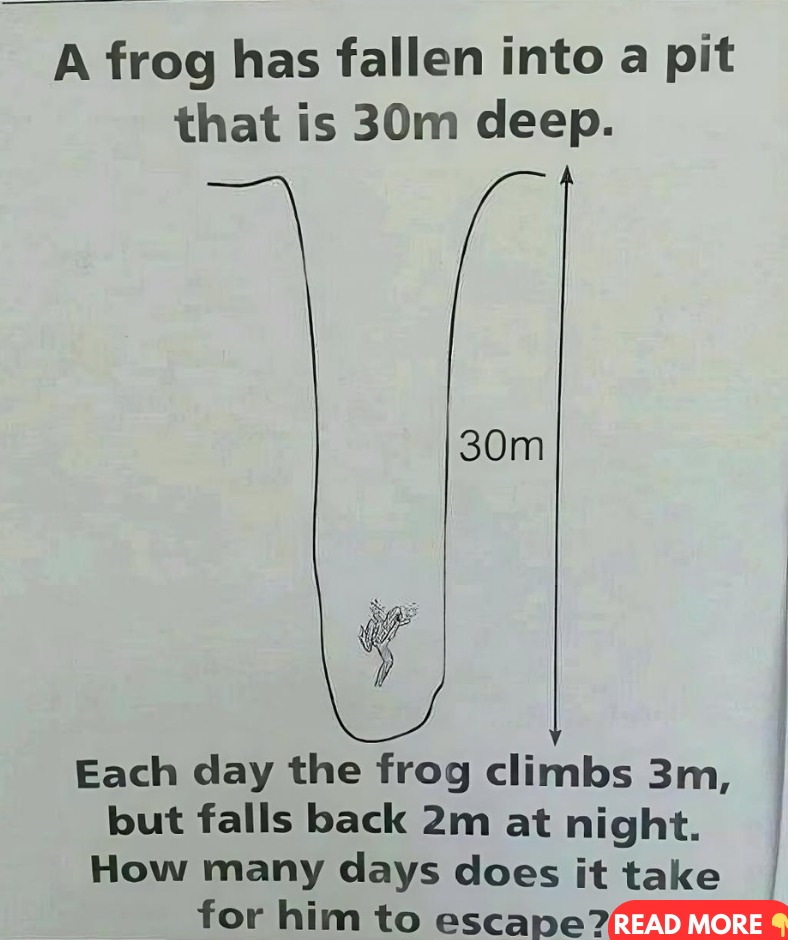Riddles have long captivated people, offering more than just entertainment; they serve as potent tools for mental development. These brain teasers enhance cognitive abilities, logical thinking, and creativity. Think of riddles as exercises for the brain, similar to physical workouts for the body. This article explores how riddles foster mental agility and contribute to personal growth.
The Cognitive Challenge of Riddles
Solving riddles is more than a casual activity; it’s a mentally complex task that activates multiple areas of the brain. When you try to solve a riddle, you engage in processing information, utilizing creativity, logic, and memory. This mental workout strengthens your mind, building “mental muscles” over time.

Consider this riddle, which tests your problem-solving skills:
“A frog falls into a 30-meter-deep pit. Each day, it climbs 3 meters but slips back 2 meters at night. How many days will it take for the frog to escape the pit?”
The answer is 28 days, but it takes more than quick thinking to get there. Solving this puzzle requires a process of pattern recognition, analytical thinking, and logical reasoning.
Solving the Frog Riddle: A Lesson in Analytical Thinking
When first faced with the frog riddle, it’s tempting to focus solely on the numbers. However, finding the solution demands a more thoughtful approach. Here’s a breakdown of how to solve it:
- Step 1: Identify the Progress – Each day, the frog climbs 3 meters but slips back 2 meters at night, achieving a net gain of 1 meter per day.
- Step 2: Recognize the Pattern – On the 27th day, the frog reaches 27 meters. On the 28th day, it climbs 3 more meters, reaching 30 meters and escaping the pit without slipping back.
- Step 3: Apply Logic – By understanding this pattern, you can accurately determine that the frog escapes on the 28th day.
This exercise in logical reasoning is essential for real-life problem-solving, as it involves breaking down information, spotting patterns, and applying logic to reach a solution.
How Riddles Improve Cognitive Skills
While riddles may seem like simple entertainment, their benefits go well beyond that. Solving riddles on a regular basis can significantly boost mental performance. Whether your goal is to enhance memory, develop problem-solving skills, or increase creativity, engaging with riddles provides an effective and enjoyable way to reach these goals.
The Everyday Importance of Riddles
Riddles challenge us to rethink our assumptions, spark critical thinking, and encourage us to view problems from new perspectives. Here are ways riddles impact various areas of daily life:
- Practical Problem-Solving – The skills developed through riddles, like logical thinking and pattern recognition, apply directly to real-life challenges. Whether you’re managing complex projects at work or troubleshooting at home, the mental agility gained from solving riddles helps tackle difficulties more effectively.
- Increased Focus Under Pressure – Riddles teach concentration, a vital skill for handling stress. In high-pressure situations, whether at work or in personal crises, this focus helps maintain calm and make sound decisions.
- Enhanced Creativity in Decision-Making – Many riddles require unconventional thinking, pushing you to consider solutions from unique angles. This creativity can lead to innovative solutions in everyday situations, from brainstorming at work to finding new ways to connect with others.
The Joy and Variety of Riddles
Riddles come in many forms, from wordplay and logic puzzles to math-based brain teasers. Each type presents a different mental challenge, keeping the brain sharp and engaged. You don’t need to be a master riddle-solver to benefit; consistency is key. Select riddles that challenge but don’t overwhelm you, and over time, you’ll notice improvements in logical thinking, creativity, and problem-solving.
The Frog Riddle as a Tool for Mental Growth
The 30-meter pit riddle is a great example of how riddles stimulate mental growth. While it may seem simple, it forces you to analyze the problem, identify patterns, and apply logical reasoning—skills that are invaluable for navigating complex real-life situations, such as planning a project, managing finances, or making tough decisions.
The Value of Consistent Riddle Solving
Incorporating riddles into your routine is like maintaining a fitness regimen for your mind. Regular practice leads to stronger problem-solving abilities, quicker decision-making, and greater creativity. Even if a riddle takes time to solve, the process of working through it is as valuable as finding the answer, helping unlock your brain’s potential.
Why Riddles Are More Than Just Fun
Riddles aren’t merely amusing diversions; they provide a mental workout that can lead to real benefits in cognitive growth. By consistently engaging with riddles, you enhance mental flexibility, improve focus, and foster a problem-solving mindset. Embracing riddles is not only enjoyable but also a valuable way to nurture a sharper, quicker, and more adaptable mind.
Embrace the Power of Riddles
Riddles are more than just a way to pass the time—they are a powerful tool for cognitive development. By solving riddles, you sharpen problem-solving skills, strengthen memory, boost creativity, and enhance focus. Engaging with riddles is more than an enjoyable activity; it’s an opportunity to train your brain to be sharper, faster, and more resilient.
The next time you encounter a riddle, don’t hesitate to tackle it. Embrace the challenge with enthusiasm, and you might be surprised at how much your mind grows—not just in puzzle-solving but also in facing life’s everyday challenges with a renewed sense of clarity and creativity.





